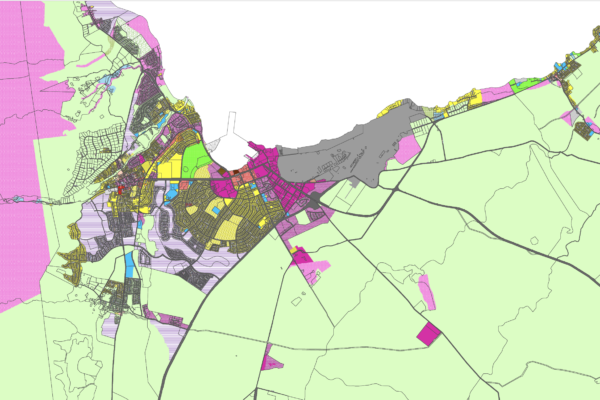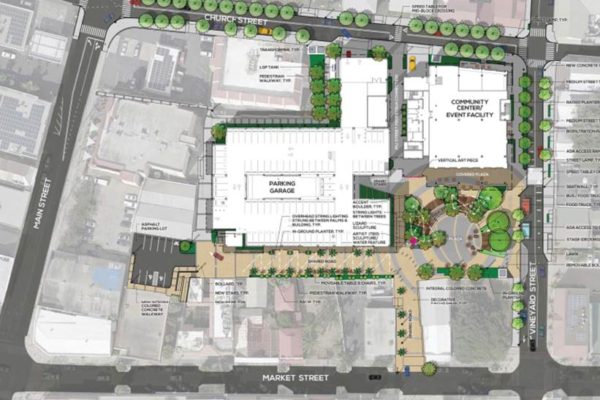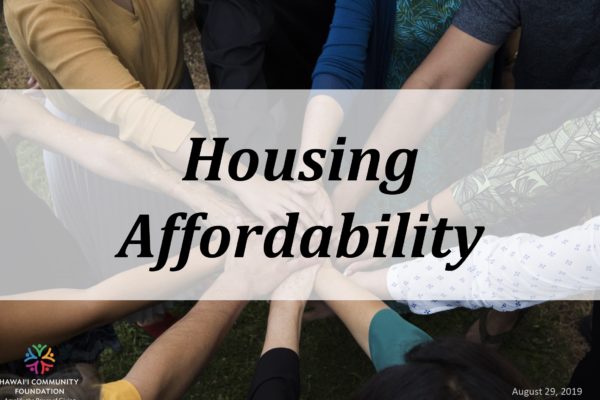Affordable housing project in Kihei OK’d
March 19, 2011 – By MELISSA TANJI, Staff Writer for the Maui News
WAILUKU – The Maui County Council on Friday narrowly approved the proposed Kaiwahine Village affordable housing project in Kihei.
After more than an hour of discussion that included the addition of five new conditions to the north Kihei project, the council voted 5-4 to adopt the resolution.
“I feel ecstatic that most of the council agreed (with me). I’m sad that I couldn’t get through to the ones that voted no,” said developer John Sindoni after the meeting.
“I’m going to prove to the county our commitment to affordable housing. I’m excited about it,” he added.
Council members who voted in favor of the project were Gladys Baisa, Robert Carroll, Don Couch, Mike Victorino and Mike White. Elle Cochran, Riki Hokama, Danny Mateo and Joe Pontanilla voted no.
Royal Main Properties LLC proposes to build Kaiwahine Village as a 120-unit multifamily subdivision with a mix of one-, two- and three-bedroom units in 15 buildings, off-street parking and other improvements on 9.3 acres at the intersection of Kaiwahine and Hale Kai streets.
The project, which was going through the state’s fast-track approval process, came under fire from area residents citing concerns about more traffic and people in the crowded area. Some council members suggested Friday that Kaiwahine was a market-priced project disguised as an affordable housing project.
Unions and construction workers have come forward to support the project, which they say could result in jobs and affordable housing for working families.
Baisa called the project a “difficult matter” and said it was sad some neighbors opposed the project. She said she would support the project but with reservations, adding, “It’s rare we have a 100 percent housing project put before us.”
Council members pointed out that many affordable housing projects have not been constructed, and Baisa acknowledged that.
“It remains to be seen if this will ever be built,” she said.
Council Member Mike White said, “I’m supporting this project wholeheartedly.”
He said adding conditions for developers, as in this case, hampers construction of affordable housing projects. He felt one condition added Friday should be a county expense because “everybody uses it.”
That condition requires Royal Main to resurface Kaiwahine Street.
Pontanilla, who had voted on the Land Use Committee against the project, offered four project conditions, which were approved, as follows:
* To designate the homes as “affordable” for three years instead of one year before they are eligible to be sold at market rates. (Affordable is defined as within the means of households, whose incomes are from 60 to 80 percent of the area median income, as established by the U.S. Department of Housing and Urban Development or as adjusted by the Department of Housing and Human Concerns for Hana, Lanai and Molokai.)
* After the three-year affordability period, the developer shall forfeit one housing credit for each unit sold at market rates equal to the value assigned for that unit.
* For any unit sold at market rates, the director of Housing and Human Concerns shall assess that unit’s pro-rata portion of the total value of the exemptions listed for the project. Funds would go to the Department of Parks and Recreation or the affordable housing fund, depending on the circumstances.
* During the construction phase, Royal Main Properties cannot have under its control vehicles with a gross vehicle weight rating of 10,000 pounds or more travel on Hale Kai Street. Couch introduced the amendment to make Royal Main repave Hale Kai Street.
After the meeting, Sindoni said he didn’t object to the added conditions and is “more than happy” to accommodate Pontanilla’s modifications.
“I don’t have a problem with any of it,” Sindoni said.
Carroll, who heads the Land Use Committee that wrangled with the project, said the panel did its best to make a decision in the 45-day period allowed under state law.
The state’s fast-track approval process exempts affordable housing developments from certain land use and other governmental requirements.
Friday’s council discussions resembled those usually held at the committee level.
“This wouldn’t have happened if we had additional time,” Carroll said.
He added that Pontanilla’s amendment to extend the project’s affordability timeline also was discussed but turned down during committee review.
Besides the five conditions approved Friday, the Land Use Committee recommended:
* Driver feedback signs that tell motorists how fast they are going, to be installed on Kaiwahine and Hale Kai streets.
* A turnaround area for firetrucks.
* That the developer set maximum values for the 120 housing credits, as follows: $54,000 for one-bedroom units, $67,000 for two-bedroom units, and $75,000 for three-bedroom units. (Housing credits traditionally have been provided under the county’s residential work- force housing ordinance and not for a fast-track affordable housing application.)
* That construction begin within five years and be completed within 10 years. A request for a time extension would have to be filed at least 90 days before the designated construction date to be considered.
* If some units are converted to market prices, the developer would pay the state Department of Education appropriate impact fees for each market unit sold, with the money going to Kihei public schools.
Estimated prices for the units are $180,000 for one-bedroom units, $225,000 for two-bedroom and $250,000 for three-bedroom.
* Melissa Tanji can be reached at mtanji@mauinews.com.



